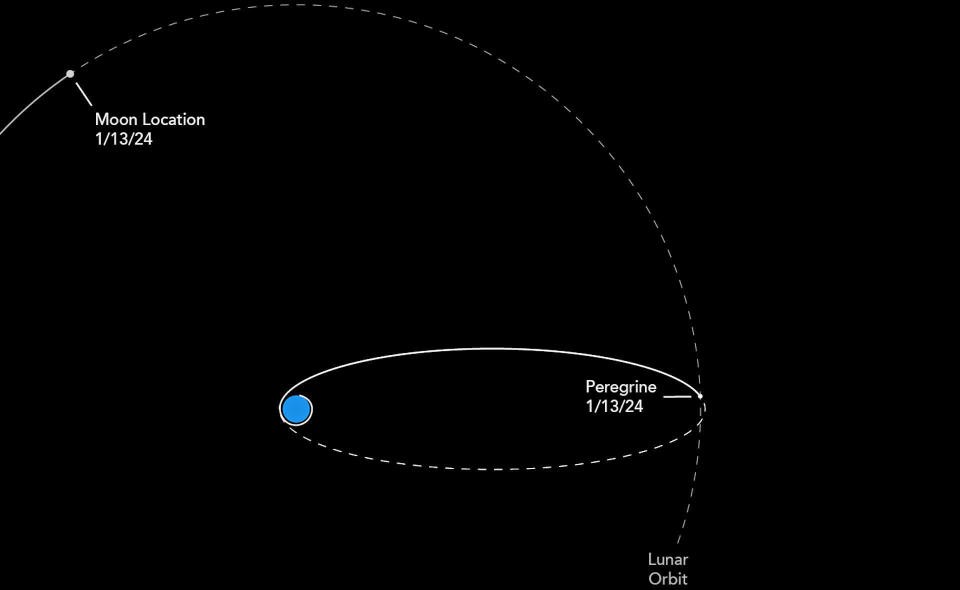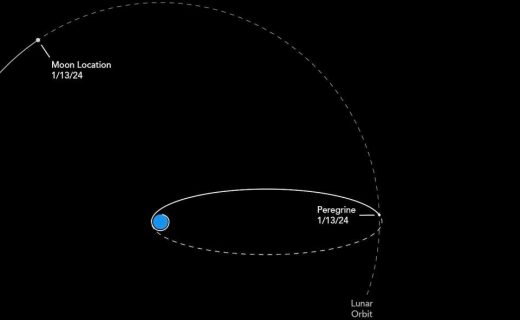Peregrine moon lander and its cargo will likely burn up in Earth’s atmosphere
Peregrine moon lander and its cargo will likely burn up in Earth’s atmosphere
Astrobotic says the doomed lander made it to lunar distance, but is heading back toward Earth.

It looks like the Peregrine lunar lander’s final resting place will be back at home where it started. The doomed spacecraft, which experienced an anomaly shortly after launch and has been leaking propellant ever since, is expected to burn up in Earth’s atmosphere, Astrobotic wrote in an update on X this weekend. The company plans to host a press conference with NASA on Thursday January 18 at 12PM ET to discuss the lander’s fate.
Peregrine has so far hung on much longer than anyone thought it would after the leak was first detected on January 8, and Astrobotic has been posting round-the-clock status updates. The company days ago ruled out a soft landing on the moon’s surface, but there’s been some uncertainty about where exactly it’ll end up. Peregrine did manage to make it to lunar distance — reaching 238,000 miles from Earth on Friday and then 242,000 as of Saturday — but because of where the moon currently is in its orbit, nothing was there to meet it.
Update #16 for Peregrine Mission One: pic.twitter.com/TiLr4AU4rB
— Astrobotic (@astrobotic) January 13, 2024
If all had gone according to plan, Peregrine would have met up with the moon about 15 days after launch, at which point it could begin the transition from Earth orbit to lunar orbit. It’s only been six days, and Peregrine’s dwindling fuel supply isn’t likely to carry it for nine more. “Our analysis efforts have been challenging due to the propellant leak, which have been adding uncertainty to predictions of the vehicle’s trajectory,” Astrobotic wrote in its most recent update on Saturday. “Our latest assessment now shows the spacecraft is on a path towards Earth, where it will likely burn up in the Earth’s atmosphere.”
It was always a known risk that Peregrine Mission One might end this way; moon landings are notoriously hard. The commercial mission marked the first of those contracted under NASA’s Commercial Lunar Payload Services (CLPS) program, and in a briefing ahead of last week’s launch, NASA’s CLPS Program Manager Chris Culbert said, “We recognize that success cannot be ensured.”
(14)



